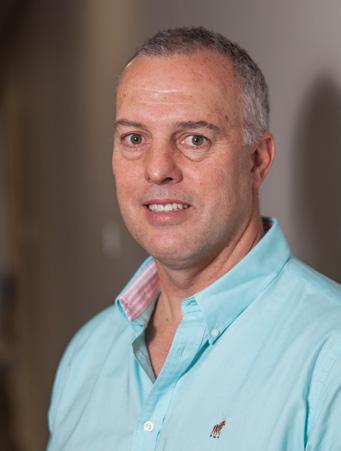
3 minute read
A CIRCULAR-ECONOMY SOLUTION FOR SOUTH AFRICA
BUILDING AN ECONOMY WHERE RESOURCES ARE SHARED, REUSED, AND RECYCLED OFFERS HOPE FOR GROWTH WITHOUT ENVIRONMENTAL HARM.
By Hermann Haupt, Vice President, CHEP Sub-Saharan Africa
Advertisement
While business is a core part of our modern way of life, it can no longer afford to take a linear approach, where we exploit resources to create products and then dispose of them as waste.
Fortunately, it is possible to build a viable circular economy. CHEP – one of the world’s most sustainable logistics businesses – has already built a business model that is not just sustainable but well on the way to being regenerative – putting back more than is taken from nature.
Reuse, repurpose and regeneration are effective solutions to the massive challenges facing the world. And we see them as fundamental to building a greener economy.
These principles are clearly outlined in Sustainability Review 2021 – Pioneering Regenerative Supply Chains, published by CHEP parent company Brambles. The review reports on CHEP’s regenerative strategy and shares the organisation’s sustainability targets for the next five years.
The CHEP programme has already shown several tangible achievements based on a ‘Planet Positive, Business Positive and Communities Positive’ strategy.
The global company is now a carbonneutral business, with CO2 emissions down to zero across Scope 1 (direct emissions from fuel) and Scope 2 (indirect emissions from electricity). To offset the remaining emissions, CHEP has invested in different reforestation projects.
CHEP has acquired and certified several South African timber farms, and now 100% Hermann Haupt, Vice President, CHEP SubSaharan Africa of its timber is from sources certified by the Forestry Stewardship Council (FSC).
CHEP also produced in Europe the first closed-loop, upcycled plastic platform – the wheeled Q+ display pallet, made from 100% post-consumer plastic waste.
While a circular economic model benefits the planet, the ultimate beneficiaries are the people who live on it. CHEP’s Communities Positive targets ensure CHEP consistently delivers a net-positive contribution to society.
Business Positive targets have led to a global management complement of 32% women, and more than 17 million people globally received meals through CHEP’s partnership with food rescue organisations.
Perhaps the greatest learning of CHEP’s campaign to build a ‘Zero Waste World’ with a circular economy is that no organisation can do it alone. It takes collaboration.
As a logistics organisation with partners across sectors, we’ve facilitated the share and re-use of our platforms and helped to reduce the environmental impact of several customer industries.
Globally, the environmental savings in the customers’ supply chains in comparison to single-use alternatives include 2,4 million tonnes of CO2, 3 160 megalitres of water, 3,2 million trees, and 1,4 million tonnes of waste.
Today, ever more businesses and consumer products are being designed using circular principles, deploying a reuse, repair, recovery, and repeat model, repurposing materials, and avoiding waste.
For South Africa, which already ranks 12th in the world for carbon emissions, it is becoming critical to improve and actively protect our environment.
It is also time to start building new economic models that sustain our environment and allow for growth without harmful impacts. The circular-economy model is proven. We are proud to be on this journey and look forward to building more partnerships to spread its benefits across our economy.










